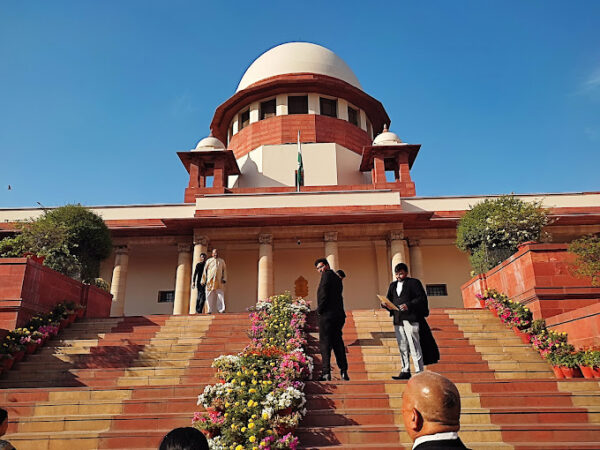News
Supreme Court to Deliver Order on September 23 in Public Interest Case Over Ecological Imbalance in Himachal Pradesh

Earlier, the Supreme Court had warned that Himachal Pradesh could “disappear from the map” if unchecked development continued, while the state government acknowledged shortcomings in addressing the crisis.
On Monday, the Supreme Court announced that it would pass an order on September 23 regarding a suo motu public interest petition concerning the ecological and environmental challenges facing Himachal Pradesh—a state that has increasingly been hit by natural calamities in recent years.
A bench comprising Justices Vikram Nath and Sandeep Mehta directed Himachal Pradesh’s Advocate General Anoop Ratan and Additional Advocate General Vaibhav Srivastava, stating, “List this matter for orders on September 23. After summarizing all points, we will issue a concise order so that you receive specific directions.”
The bench also signaled its intention to broaden the scope of the petition beyond Himachal Pradesh, potentially covering the entire Himalayan region. Justice Mehta remarked, “This will not be limited to Himachal alone… it will extend to the entire Himalayan belt…”
The order followed submissions by Court-appointed amicus curiae K. Parameswar, who pointed out certain deficiencies in the state’s affidavit. The affidavit merely suggested forming a committee to study various aspects of the issue without offering concrete details.
Expressing grave concern over ecological imbalance in the state, the Supreme Court had earlier, on July 28, warned that if uncontrolled development continued, the entire state could vanish from India’s map.
Acknowledging that “existing measures have shortcomings” in tackling the crisis, the Himachal Pradesh government sought at least “six months” from the apex court on August 25 to prepare a roadmap.
In an affidavit filed before the court, the state government stressed the “need to identify gaps in responding effectively to the devastating situations witnessed in recent years, as well as the ongoing challenges, and to formulate a comprehensive long-term action plan.”
The court, in its July 28 remarks, observed, “We want to make it clear to the state government and the Union of India that revenue generation cannot be everything. Revenue cannot be pursued at the cost of the environment and ecology. If matters continue as they are today, the day is not far when the entire state of Himachal Pradesh will disappear from the country’s map.”
“God forbid that it happens. Therefore, it is crucial to take adequate steps in the right direction as soon as possible,” the court added while dismissing an appeal by M/s Pristine Hotels and Resorts Pvt Ltd against the High Court’s decision to uphold the state’s June 6, 2025 notification denying permission to construct a hotel on Shri Tara Mata hill. The notification had declared the area a “green zone,” banning all private construction at the site.
Following the court’s warning that unchecked development could wipe out the state, the Himachal Pradesh government defended its hydropower projects, calling them a cleaner alternative to fossil fuel-based thermal power plants.
In a response affidavit filed in court, addressing concerns over ecological imbalance and the alleged destruction caused by hydropower projects, the state government emphasized that its economy largely depends on hydropower and tourism.
